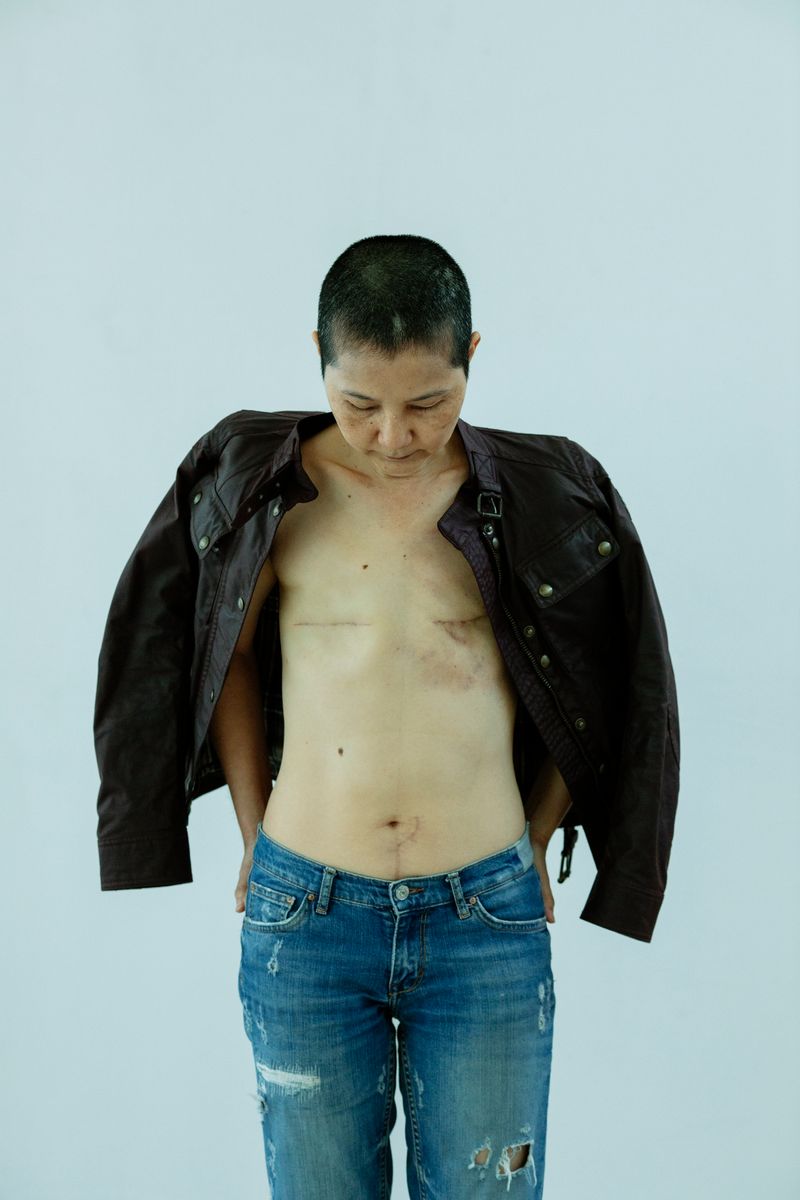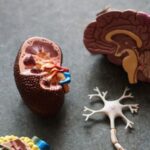Alastair Stewart reveals he has been diagnosed with dementia
A Candid Revelation
Alastair Stewart, one of Britain’s most beloved newsreaders, has made a brave and candid revelation. In an interview with the Camilla Tominey Show on GB News, Stewart announced that he has been diagnosed with early onset vascular dementia. This news comes as a shock to many, as the 71-year-old had been a prominent figure in British news for over three decades, serving as one of ITV’s flagship newsreaders and most recently presenting programs for the rightwing TV channel GB News.
Recognizing the Symptoms
Stewart expressed that he had been feeling “a bit discombobulated” for the past six to nine months. While he wasn’t experiencing forgetfulness, he noticed difficulties in tasks such as tying shoelaces properly and keeping track of time. Recognizing that something was amiss, Stewart made the brave decision to consult his GP. He expressed concerns about early onset dementia and underwent a scan that revealed a series of minor strokes known as infarct strokes. The cumulative effect of these strokes led to a diagnosis of early onset vascular dementia.
Support from the NHS
Stewart commended the NHS for their excellent care and support throughout his diagnosis and treatment. He emphasized that the healthcare professionals he encountered were instrumental in guiding him through this challenging time. As a result of his diagnosis, Stewart has made positive changes in his lifestyle, such as quitting smoking, going on longer walks with his dog, and keeping his brain active with puzzles.
Impact on Loved Ones
Stewart candidly shared that the most difficult aspect of dealing with dementia is the impact it has on his wife, Sally. After being married for nearly half a century, he expressed his sadness at seeing his life partner reduced to the role of a caregiver. He highlighted the importance of recognizing and appreciating the support and love of those closest to us in times of hardship. Stewart’s heartfelt message serves as a reminder of the significance of maintaining strong relationships and providing care and understanding to those facing health challenges.
A Message of Courage and Resilience
Despite his diagnosis, Stewart remains determined and optimistic about the future. He expressed his gratitude to GB News for their ongoing support and indicated his hope of continuing to contribute to the media industry. Stewart’s courage and resilience in the face of his diagnosis serve as an inspiration to others facing similar health challenges. His candid revelation and advice to seek medical help and lean on loved ones highlights the importance of addressing concerns about one’s health proactively and seeking assistance from trusted professionals.
Editorial: Alzheimer’s and the Need for Increased Support
Shedding Light on Dementia
Alastair Stewart’s openness about his diagnosis of early onset vascular dementia brings much-needed attention to a condition that affects millions of people worldwide. Dementia, including Alzheimer’s disease, has become a growing concern, both for individuals and society as a whole. Stewart’s revelation serves as a reminder that dementia does not discriminate based on fame or success and can affect anyone, regardless of background.
The Importance of Early Diagnosis and Support
Stewart’s decision to seek medical help at the first signs of trouble is commendable. Early diagnosis of dementia is crucial, as it allows individuals and their loved ones to access necessary support and plan for the future. It is vital for healthcare systems to prioritize dementia screening and provide resources for early intervention and support services.
Challenges Faced by Caregivers
Stewart’s candid discussion about the impact on his wife, Sally, sheds light on the often unspoken challenges faced by caregivers of those with dementia. Caregivers play a critical role in supporting individuals with dementia, but they too need support and resources to navigate the physical, emotional, and financial strains associated with caregiving. It is essential for society to recognize and address these challenges, providing caregiver support programs and initiatives.
Investing in Research and Innovation
The revelation of Stewart’s diagnosis should serve as a wake-up call to policymakers and healthcare providers to increase investment in dementia research and innovation. Advancements in understanding the causes, prevention, and treatment of dementia are necessary to improve the lives of those affected by the condition. Developing effective therapies and interventions requires sustained funding and collaboration between researchers, medical professionals, and government institutions.
A Call for Dementia-Friendly Communities
Stewart’s story highlights the importance of creating dementia-friendly communities that provide a supportive and inclusive environment for individuals living with dementia. From public spaces designed with accessibility in mind to educational programs that promote awareness and understanding, society must work together to cultivate an environment that respects and caters to the specific needs of individuals with dementia. By fostering acceptance and reducing stigma, we can ensure that everyone, regardless of their diagnosis, can participate fully in society.
Advice: Seeking Support and Building Resilience
Recognize the Signs and Seek Professional Help
Stewart’s message of seeking medical advice when experiencing possible symptoms of dementia is essential. If you or a loved one notice difficulties with memory, cognition, or other cognitive functions, do not hesitate to consult a healthcare professional. Early intervention and support can make a significant difference in managing the condition and planning for the future.
Lean on Loved Ones
Stewart’s experience underscores the importance of relying on the support of loved ones during challenging times. Share your concerns and feelings with close friends and family members, as they can provide emotional support and help navigate the journey ahead. Building a strong support network is crucial for maintaining mental and emotional well-being.
Stay Active Mentally and Physically
Engaging in mentally stimulating activities, such as puzzles, reading, or learning new skills, can help keep the brain active and potentially slow cognitive decline. Additionally, maintaining a physically active lifestyle, including regular exercise, has been shown to benefit overall brain health. Consult with healthcare professionals to determine appropriate activities and exercise routines.
Access Support Services
Reach out to support services, organizations, and local communities that offer resources and assistance for individuals with dementia and their caregivers. These services may include support groups, counseling, respite care, and practical advice on navigating legal and financial aspects of dementia care.
Advocate for Change
Become an advocate for policy change and increased investment in dementia research, support services, and caregiver programs. Join local or national organizations that work towards improving the lives of individuals with dementia and their families. By raising awareness and advocating for change, you can make a difference and contribute to creating a more dementia-friendly society.

<< photo by Michelle Leman >>
The image is for illustrative purposes only and does not depict the actual situation.




